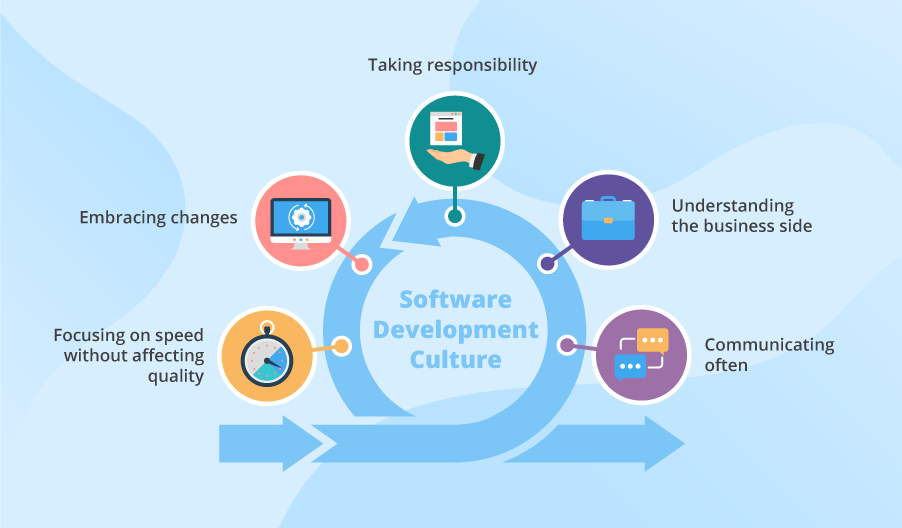
Agile Business Culture: Navigating Change for Success

Navigating Change: The Essence of Agile Business Culture
In the fast-paced landscape of contemporary business, agility has become more than just a buzzword. It’s a strategic imperative, and at the heart of this imperative lies the concept of Agile Business Culture. As organizations face constant changes in markets, technology, and consumer expectations, adopting an agile culture is essential for not just surviving but thriving in this dynamic environment.
Embracing Change as the Norm
Agile Business Culture hinges on the acknowledgment that change is not an exception but the norm. Traditional, rigid structures are giving way to adaptable frameworks that enable organizations to respond swiftly to evolving circumstances. This shift requires a cultural transformation where change is not feared but embraced as an opportunity for growth and innovation.
Collaboration: Breaking Down Silos
One of the core principles of Agile Business Culture is fostering collaboration across departments and teams. Silos inhibit the flow of information and hinder adaptability. By breaking down these silos, organizations can create a more interconnected and responsive environment. Collaboration becomes the catalyst for shared knowledge, creativity, and collective problem-solving.
Iterative Progress: Learning from Feedback
The iterative approach is central to agility. Instead of pursuing lengthy and rigid plans, Agile Business Culture encourages iterative progress. Teams work in short cycles, constantly reassessing and adjusting their approach based on real-time feedback. This iterative mindset not only accelerates the pace of innovation but also minimizes the risks associated with large-scale, irreversible decisions.
Customer-Centric Focus: Anticipating Needs
An Agile Business Culture places a strong emphasis on understanding and fulfilling customer needs. By staying attuned to customer feedback and market trends, organizations can proactively adapt their strategies. This customer-centric approach ensures that products and services align closely with market demands, fostering customer loyalty and satisfaction.
Adaptive Leadership: Guiding Through Change
Leadership plays a pivotal role in cultivating an Agile Business Culture. Adaptive leaders inspire and guide teams through change. They prioritize open communication, empower their teams to make decisions, and create an environment where learning from failures is encouraged. Adaptive leaders are the driving force behind the cultural shift towards agility.
Flexibility and Empowerment: Nurturing Talent
In an Agile Business Culture, flexibility and empowerment go hand in hand. Employees are empowered to take ownership of their work and are given the flexibility to experiment and innovate. This not only enhances individual and team performance but also contributes to a culture of continuous improvement.
Agile Tools and Methodologies: Enabling Efficiency
The adoption of agile tools and methodologies is integral to realizing the benefits of an Agile Business Culture. From Scrum to Kanban, these frameworks provide structured approaches to managing work, enhancing efficiency, and fostering a collaborative mindset. Organizations that invest in these tools empower their teams to work more cohesively and adapt quickly.
Measuring Success: Beyond Traditional Metrics
Agile Business Culture requires a shift in how success is measured. While traditional metrics like productivity and efficiency remain important, the focus extends to metrics that gauge adaptability, innovation, and customer satisfaction. This holistic approach provides a more comprehensive understanding of organizational success in an agile context.
Agile Business Culture in Action: A Transformative Journey
To delve deeper into the practical implementation of Agile Business Culture and discover success stories, visit Agile Business Culture. This resource provides valuable insights, case studies, and resources for organizations looking to embark on or enhance their agile journey.
In conclusion, embracing an Agile Business Culture is not just a strategy; it’s a mindset that positions organizations to navigate change with resilience and foresight. By fostering collaboration, iterative progress, customer-centricity, and adaptive leadership, businesses can create a culture that thrives in the face of uncertainty, ultimately propelling them toward sustained success.



